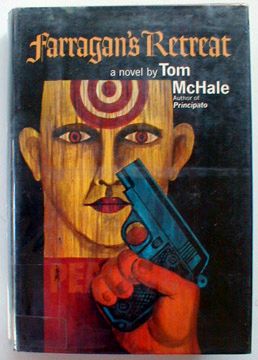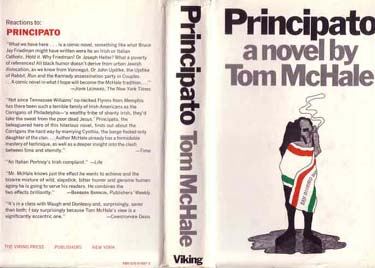I’ve kept a daily diary since the summer of 1969, just before I started college, and I haven’t missed a day in almost 38 years. I thought, to totally humiliate myself, I’d present some excerpts from my diary from about 30 years ago when I went to the Bread Loaf Writers’ Conference. I generally wrote 700-1200 words a day, so this is just sections, which hopefully will not be too boring. I’m trying to present material that I think might be of at least minimal interest to others because it mentions some writers of note. It also exhibits my hilarious utter lack of sophisticated reflection on what I experienced.
Thursday, August 16, 1977
The bus left Port Authority at 9:30 a.m. and we made pretty good time up the Thruway, getting to Albany in 3 hours. My phobias didn’t bother me, but I was very tense. I chatted with Barbara Unger, a 35ish poet and teacher at Rockland County Community College.
We really are in the middle of nowhere, especially where they stuck me, in Gilmore, which is ¾ of a mile from the rest of the Bread Loaf buildings. I do have a room all to myself and I suppose I should be grateful for that. I’ve met so many people I’ll never be able to remember all their names.
Dinner was fairly bland but wholesome, and after that we hung around till 8 p.m. when we went into the Little Theater. Bob Pack and Sandy Martin, the directors of the conference, introduced themselves and made short welcoming speeches. Martin said that the average Bread Loafer is 35 and there are many varied people here – kids my age and younger; middle-aged women; even retired septuagenarians.
Maxine Kumin read her poetry, and she was pretty good, and afterwards there was a reception social at the barn…The waiters are all Contributors, and if you miss the first 15 minutes of meals, the doors are slammed in your face.
Wednesday, August 17, 1977
I think I’m getting civilization withdrawal pangs; it was such a shock to see the first page of the New York Times saying Elvis Presley had died. I got a lift this morning with Carl Dennis next door. He teaches at Buffalo, and his poetry books have been published by George Braziller. Several years ago he was a Bread Loaf Fellow and now just comes back to see his old friends.
I went to all 3 morning lectures: Bob Pack, director of the conference, spoke on the importance of words, the particular word in poetry. He used poems by Frost, Robinson, Dickinson and even Paradise Lost to make his points, and he was pretty interesting.
Stanley Elkin came next and he was a disappointment. He played cranky old man and didn’t give a lecture, but just answered questions. I asked him a question that I thought deserved a serious answer, “Does a short story have to have a beginning, a middle and an end, and what order should they be in?” and he just laughed and said that of course they did and anyone who changed the order was just “stunting.”
The audience sensed Elkin’s superiority and they were fairly hostile. At the end he said, “I’m sorry,” and hobbled off on his cane. The next lecturer was Mark Strand, who chose to address the subject of “craft,” but his delivery was so pedantic that my mind was wandering before he’d gotten through a third of his text.
I found a letter in my mailbox. As a Scholar (it says in the leaflet that I won the National Arts Club Scholarship in Prose), I’m invited to the cocktails at Treman House for Staff, Scholars, Fellows and Assorted Visitors. There is a lot of drinking going on here—a hell of a lot.
I had lunch with Carl, David, Debbie and an elderly couple who called each other “Mom” and “Dad.”
Thursday, August 18, 1977
After writing yesterday’s entry, I smoked some hash with Bob and Charles, then fell into a sort of restful semi-sleep. At 5 p.m. David came back, and I persuaded him to drive into town. It was a relief to get back to the real world. I hadn’t realized (how did I miss it?) that we are on the top of a mountain.
Vermonters impress me with their courtesy and their progressiveness—there are no roadside billboards and the soda cans have press-ins, not flip-tops, and there’s a 5-cent
refund on the aluminum.
We made it back to the Little Theater just in time for John Irving’s reading of the start of his forthcoming novel The World According to Garp, which sounds like it will be hilarious; I wasn’t bored for a minute. I walked back in the dark with Kevin, Bob and Charles. Traipsing up the road to Gilmore somehow reminded me of that recurring scene in Buñuel’s “The Discreet Charm of the Bourgeoisie.” I looked up and was amazed –almost intoxicated – by so many bright stars, something I’d never seen before in my life.
Last night I went down to the study with Rick and Greg and David, and we sat by the fire and read each other’s work. I think it’s neat to be living in a house where 12 guys in their 20s are all reading To the Lighthouse. (Idea for story: A dozen guys, each reading a different Virginia Woolf novel, are living in a house in the woods. Title: “Virginia Woolf Is For Lovers.”)
I attended each lecture today. Toni Morrison spoke about a “useable past” in fiction and read from the new Song of Solomon. Marvin Bell gave a brilliant lecture on receptivity being important to creativity and seemed to stress instinct, readiness, and continuous working – he said the more you do something, the better you get at it.
John Gardner got me appropriately riled with his talk of “Moral Fiction,” attacking post-modernist textured fiction (Gass, Barthelme, Sukenick, Barth) for not having any values or philosophy at bottom.
I had a discussion group with John Gardner from 2 p.m. to 3:30 p.m. and he was fascinating; I did my share of talking and got him to admit that he was using overkill, that of course texture is important – but only if it’s “in service” (my words, with which he agreed) to character, plot and values.
Gardner is a strange-looking man with that Veronica Lake-like blond hair but he’s sweet and smart, and he’s leading me to rethink some of my preexisting ideas about fiction. And that’s good.
Friday, August 19, 1977
Noon. Kevin and I just walked back to the house after a fantastic lecture by John Irving which was actually a story he wrote. He and his 13-year-old son Colin read it aloud; the point of it was that made-up stories are always better than the true story, that “but it really happened that way” is the worst excuse for unsatisfactory fiction.
I feel that a lot of what’s going on here has been useful to me. Even Stanley Elkin’s bitterness seems justifiable; the man has paid his dues and has been very ill. He looks 20 years older than 47.
John Gardner is more accessible than I thought he would be. He and Bill Gass, he says, like to tramp through the woods and scream at each other, arguing about fiction. I now get the feeling that a lot of what he says is just for effect. For instance, when asked his opinion of Nabokov, Gardner came out with “I think he’s a cheap diabolist,” eliciting shock from the crowd. Right or (probably) wrong, that takes guts.
Mark Strand read from his poetry last evening; the man is icy cold, but as I told Carl Dennis, I guess someone’s got to write poetry for the cold people. And one has to admit he’s good.
I had breakfast in the Barn with Dannye Romine, a fellow Fiction Scholar, a thirtyish woman who’s the book editor of the Charlotte Observer. We missed the first lecture but did go to hear William Meredith’s talk on the uselessness of personal anguish unless it is raised to the universal level; he used Bellow’s Herzog as a starting-off point.
Then came the Irving performance, which was great. I’d better get back to the Inn or I’ll miss lunch.
Saturday, August 20, 1977
After lunch yesterday, I went to a panel discussion on “Getting Started”: Kumin, Bell, Meredith and Irving hit some nerves as they talked about how they write, but I imagine every writer works slightly differently, and the aura, the inspiration, Kumin’s “prickle on the back of the neck” vary with each individual.
We took the jeep back for dinner, and I ended up sitting next to Patti Pack, the director’s wife, who told me that 100 years ago two families owned this inn and operated it as a kind of 19th-century commune. When it was bequeathed to Middlebury College, they thought it was a white elephant and didn’t know what to do with it until Frost came along.
After dinner, Toni Morrison read a beautiful passage from her new novel. She’s a terrific reader and deserved her standing ovation.
Back at the Barn again, I sat with Ron Carlson, who’s 30 and teaches at Hotchkiss and looks it. But he’s incredibly sympathetic. Ron gave me a lift back to the house, where I tried to relax.
At 10 a.m. today, the literary agent Georges Borchardt spoke on first book contracts. I skipped the next two lectures and sat in the Barn (it was freezing outside, the coldest it’s been – and nobody was prepared for it) with Dannye Romine and Raymond Sokolov, the Times food critic and novelist, who’s a Fellow.
I could see John Gardner going over David’s novel with him. David was told that he could be a good writer and have a good novel, but he has to stop thinking about old rules and dig “deeper and deeper and deeper.” I had lunch with Debbie and that nice Gloucester teacher (a blonde divorced poet); we had a long discussion on literary “cuteness,” a big problem for me.
In our discussion group, John Gardner lectured on how to write a novel and he was just so brilliant (even though I disagreed with him) that it was too much for me to take in at once. He believes first in character and that everything stems from that. A good novel should take at least 5 years – work on it till it’s an ecstatic experience, “ex-stasis,” out of yourself, as if God had written it.
But Gardner did say that you can do anything in a short story, so I feel he’s not totally against me. I’ll never be able to write (to sweat out) a novel like Gardner; my temperament makes me basically an artificer, not an artist. I prefer games and play to “serious, big” statements. Maybe that will change, but now I feel I’m so young, I don’t have any big statements to make. However, I do seem to have lots of little statements to make.
I’m going to see Tim O’Brien tomorrow at 11 a.m. for my manuscript conference. I’m not very concerned with what he thinks of my stuff.
The mice are starting to bother me: they got into my cookies. Ugh! At least I didn’t scream like Hilma Wolitzer did the other night (so I heard).
There are about five more entries but this is probably all anyone can stand – if anyone feels otherwise, I’ll post the rest of this moronic diary.

